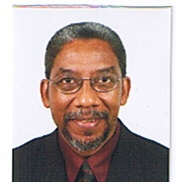 Project Independence – After 56 Years: Present and Future As August 31st approaches, TT experienced a ‘wake up’ call on the 10th day before the anniversary of the launch of project Independence – the most powerful earthquake in living memory reminded us (if only temporarily) of the vulnerability of our existence and fragility of our ‘material abundance’. Already challenged by another devastating episode of economic collapse, having experienced the drama of a tortuous and incredulous selection process for a top cop created by Parliamentary unanimity, cringing at each murderous act of barbarity attempting to qualify as more horrendous than the last, we approach the end of the 56th year since ‘our nation is born, leh meh tell yuh’. Our Present We are now 6 years beyond the golden jubilee of project Independence. Since the 50th anniversary, some important developments have occurred:
Already, the radio ads encourage us to ‘love 56’ and one tv ad depicts the physical infrastructure and legacy projects, ‘nation-building’ songs are added to radio playlists all in attempt to generate some enthusiasm for “happy Independence”. What we need to ask is: What is the state of our nation-building project? The Nation-building Project The words of the first Prime Minister in a message ahead of the first Independence Day reminds us that the nation-building project is what we are fundamentally engaged in: "On August 31, 1962, a country will be free, a miniature state will be established, but a society and a nation will not have been formed. After August 31, 1962, the people of Trinidad and Tobago will face the fiercest test in their history - whether they can invest with flesh and blood the bare skeleton of their National Anthem, 'Here, every creed and race find an equal place.' – Dr. Eric Williams, History of the People of Trinidad and Tobago, page 282. Perhaps, we may derive some assistance from these words of the current Project Manager (PM): “But we still have much work to do. As a nation, we have not yet realized the full measure of our promise.” – Dr Keith Rowley, Speech at Dr. Eric Williams – 34 Years Later, 2015 And what is the ‘measure’ of our progress? Do we focus on how many Heads of Government we have had, as Nigeria did at the end of its 56th year, 2 years ago, under its 13th President, and its journey described as a ‘tortuous road to nationhood’? Do we tally GDP figures or other economic indicators and ignore the current state of our economy or what has led to a decision to close our oil refinery after 104 years? Or without rethinking the fundamentals of an approach to economic development continued since the 1940’s? Do we count infrastructural projects, buildings, roads, bridges, ‘legacy’ structures while ignoring the fact that after 56 years it could be admitted after a potentially dangerous earthquake that we do not yet have an enforceable building code? Do we count the number of vehicles on our roads while ignoring the absence of a reliable and efficient mass transit system since the abandonment of our railway and the rise and fall of the motor car assembly industry? Do we evaluate our progress based on ‘material abundance’ based on the abundance of goods produced and available for consumption by various groups of society we label ‘income groups’? We have been encouraged to use these measures from the standpoint of objects and the products of the consumption industry. We promote the notion of consumption without even paying attention to how many people are employed in the production of basic things that we need - like food, clothing, housing as against how many are engaged in producing consumer items. We even ignore how many are unemployed or being put out of employment and unable to have the means to obtain the necessities. There is another view of ‘material abundance’ which focuses on people, rather than objects. This definition focuses on development of human resources and the encouragement of human initiative and human energy for the building of the nation. In 1962, with the advent of Independence, motivated by the expectation of control of our society and development, scores of people in Pegasus and other organisations, their human initiative released embarked on the nation-building project. There was such enthusiasm to contribute. The irony was that the first PM and his government, strangled that initiative and energy since the people had no resources or control to be able to fully implement the projects they had developed. The ’material abundance’ as objects and consumption replaced that as human development. Without rebuilding real hope in the future as happened with the arrival of ‘self-determination’ in 1962, the ‘full measure of our promise’ will never be realized. Conflicting Interests It is interesting that on this eve of the 56th anniversary one trade union is trying to convince Government to allow one set or businessmen to get control of the steel mill from which the workers were thrown out of jobs when the previous owners closed it down because they were not making enough profit. The union is convinced that new owners will ensure their jobs. But, their own recent experience shows that the employer and the employees each have interests of their own; the owner in maximum profit and the worker in keeping his job. There are conflicting interests even when there may be seemingly common interests. The owner and the worker may seem to have a common interest in keeping the factory open, but each has their own interest. Similarly, the banker and borrower also do not have the same interests. Likewise, all politicians have one thing in common – they all want power. But, those in Government want to stay in power, while the Opposition have their own plans to come to power. They all promise they will solve the problems and the people should either put them or keep them in power to do so. The people’s experience shows them that there is a conflict between what they want and what the politicians want. There is even a conflict between what the politicians say and what they do. So, each set of politicians promises to solve crime, to end corruption, to unite the people. They all promise ‘change’. But, after 56 years, the society is polarized because of party support and every effort to keep the people apart using race or religion is being made. Crime is rampant, corruption is denying the society of vital resources and is unpunished, the economy is in crisis, institutions are in a mess and degeneration and decay is destroying the very social order. Even the problem, the ‘area of brokenness’ – the relationship between Tobago and Trinidad remains unsolved. There is before the Parliament a Bill for self-government for Tobago, proposed by a political party which opposed the idea when it was raised by Robinson and Murray in 1977, and which is not satisfactory to the people of Tobago. The Future In four years, we will be marking the Diamond Jubilee, 60 years of Independence and the nation-building project, what will our assessment be then? We cannot, at that or any other time in the future merely continue with hopes, sentiments and expectations. Nor can we continue with “constitutional reform, …. that is in stasis” as President Richards told us at the 50th anniversary, or an economy that is not diversified as promised by Dr Williams on Independence Day 1974. We cannot continue with promises unfulfilled and a society under anti-social pressure and a nation…still not formed as we were urged even before August 31st, 1962. The people must once again take charge of the nation-building project and project Independence and unleash their human energy with a plan and action if the nation envisaged in 1962 and named by the people in 1970 is to be realized – Trinbago. Clyde A Weatherhead A Citizen Fighting for Democratic Renewal of Our Society 28 August 2018 Comments are closed.
|
AuthorI am a appalled at the loss of the simple skills of discussing ideas and sharing Opinions to DEEPEN ANALYSIS and UNDERSTAND DEVELOPMENTS to ARRIVE AT SOLUTIONS. Archives
April 2024
Categories |

About Clyde Weatherhead
Clyde has been involved in public life as a political activist, a trade unionist, Lawyer, Teacher and Author |
Connect With Clyde
Write to Clyde on Facebook Visit Clyde's Author Page on Amazon Go To Discussion on Facebook For Employment Relations Issues |

 RSS Feed
RSS Feed